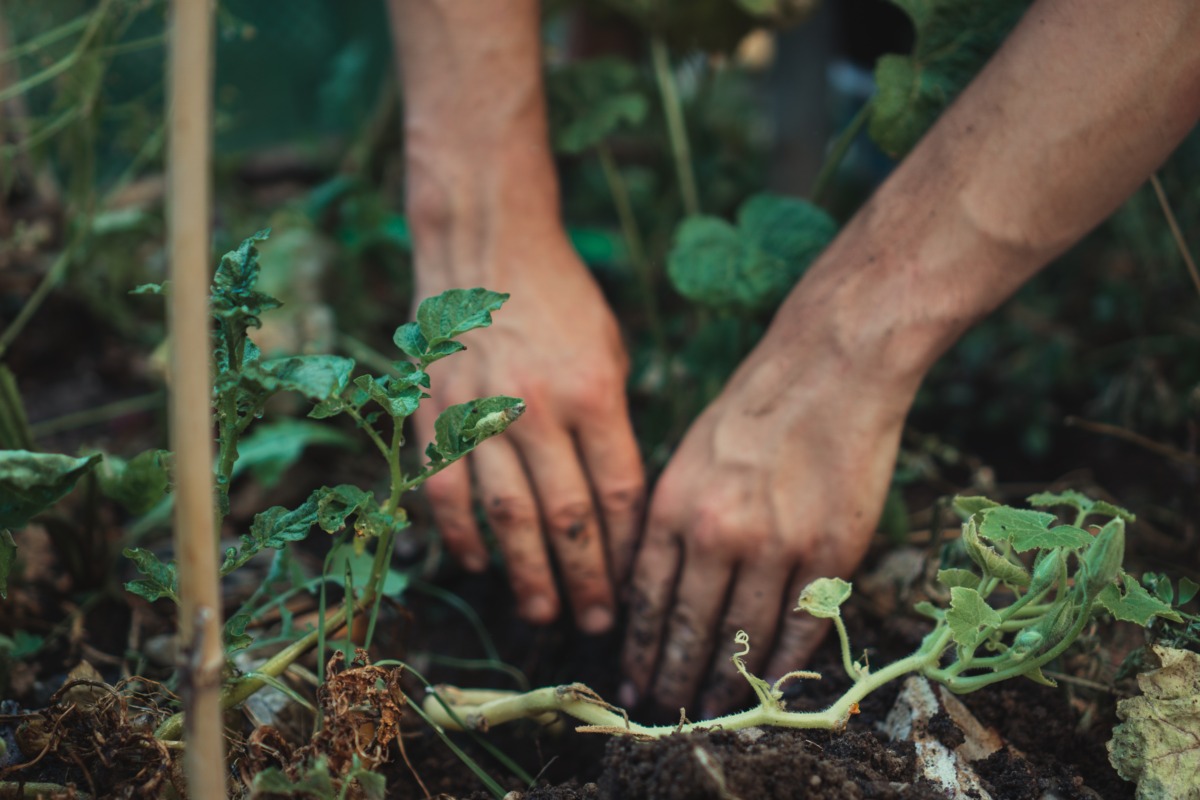As a company managing waste in today’s zero-waste-driven and climate-focused culture, it is not only an unspoken duty but a basic requirement for us to continuously seek ways in which how we handle waste can help reverse the effects of climate change.
There are a number of ways in which we, as both a business and as residents of this planet can create a lasting impact in the environmental changes occurring around us.
One of these ways relates to a topic that would not typically come to mind in the fall season. The use of compost in your landscaping, yard, and garden can actually create more significant positive environmental impacts than you might imagine!
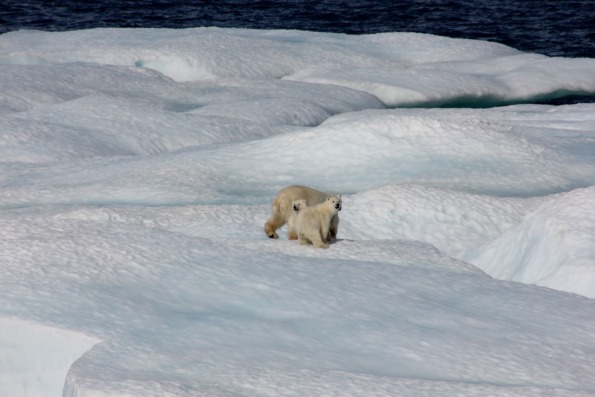
How the earth benefits from the application of compost & How composting fights climate change
If not for composting, organic waste would be landfill-bound.
You may have heard of Carbon Dioxide (CO2), a “heat-trapping gas […] that comes from the extraction and burning of fossil fuels (such as coal, oil, and natural gas), from wildfires, and natural processes like volcanic eruptions.” “CO2 in the atmosphere warms the planet, causing climate change. Human activities have raised the atmosphere’s carbon dioxide content by 50% in less than 200 years.”
Rotting organic waste on the other hand, buried in the landfill (unable to breathe) creates a similar gas, methane (CH4), which is 20 x more potent than CO2.
By diverting organic waste away from landfills, we not only free up much needed space which extends the capacity and lifespan of existing landfills, but reducing the creation of methane contributing to global warming.
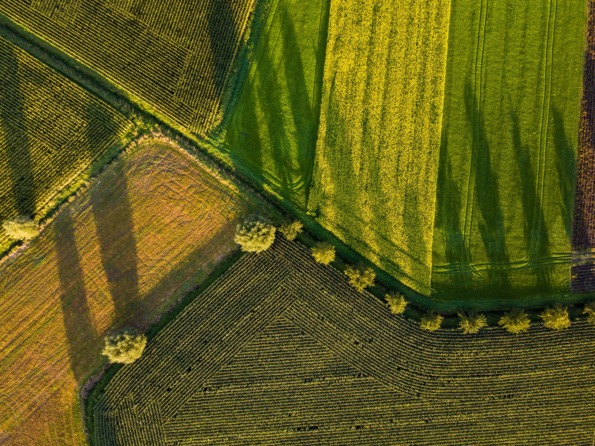
Experts say that compost can also act as a carbon sponge, accelerating plant growth and improving vegetation health, which absorbs carbon from the atmosphere.
Fall / autumn is a great time to apply compost
Contrary to popular belief, the best times to apply compost to your landscaping, yard, and garden is not only in the spring, but in the fall as well.
Adding compost to your soil in the fall can not only keep the top layer from being removed during snowfall, but also ensures that compost has a longer time to fully mature before use in the spring.
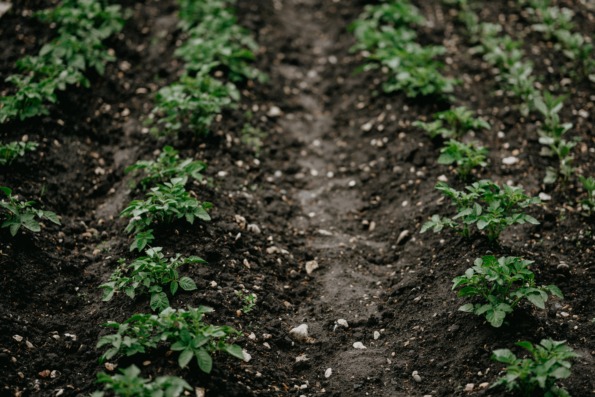
A couple gardeners we’ve spoken to over the last few months have noted they would buy a whole cubic yard and store it in a shed near their garden for easy-access and continual application in small amounts over the year, for best results. This continuously feeds nutrients into the soil.
Where can I find the best compost for my garden?
So now begs the question, “Where can I get quality compost for my landscaping, yard, and garden, in the Vancouver B.C. area”?
If you’ve read this far, you’re in luck. We’ve made it our mission to find ways in which we can ‘close the loop’ in recycling otherwise waste-bound materials we collect from clients all over the Greater Vancouver & Lower Mainland of B.C.
One of the ways we ‘walk the talk’ in our slogan “Recover Today, Reuse Tomorrow” is taking the organic food & yard waste we collect, and hauling it to our partners at Net Zero Waste Eastgate, where the organics is turned into a compost product via a sustainable 60-day process using the Gore Cover System™.
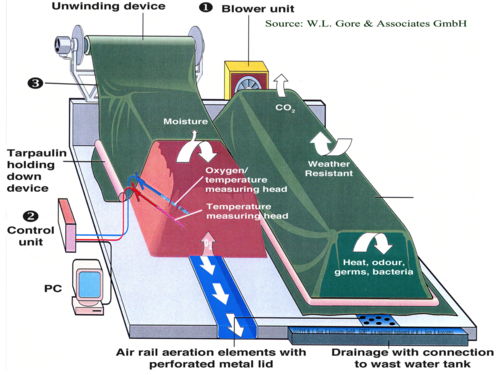
Pictorial of the Gore Cover System Technology
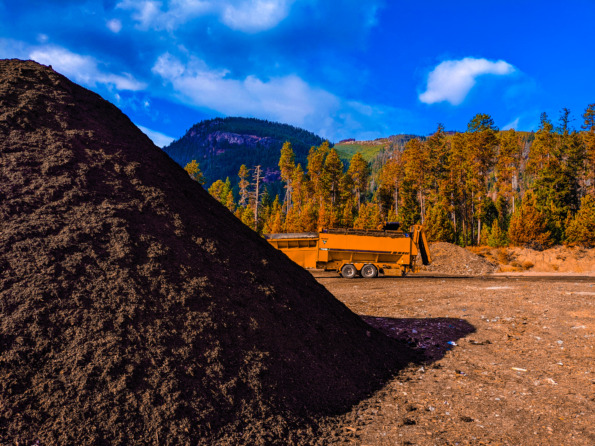
Net Zero Waste organics processing facility in Eastgate, B.C. – Photo by Amanda Cowper
We then haul the finished product, a high-quality compost back to our WCS Depot located at 1493 Dominion Street North Vancouver, where the community can access/purchase the compost for their landscaping needs, yards and gardens. Below is a photo on-site showing how we load our compost in bulk, by the cubic yard straight into the truck bed of one of our customers. Most folks put a tarp down in the truck bed for easy transport and clean up.
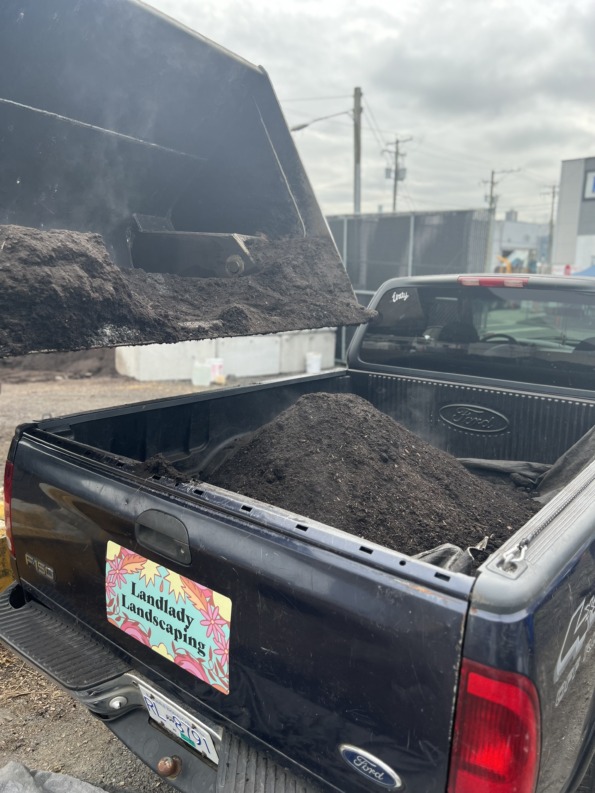
WCS Soil Depot, North Vancouver B.C. – Bulk compost loading process – Photo by Charmaine Wu
Mythbuster: As a recycling company, will there be residual wastes or plastics in our compost?
How can we trust that a garbage collection company such as Waste Control that provides recycling collection services can offer quality compost? How can you guarantee there aren’t bits of plastic or residual garbage or waste in the finished compost product?
We can say with 100% certainty that this is not the case with this product, as most composts on the market today go through a half-inch screening process to sift out ‘overs’ or residuals (items that didn’t break down, or that don’t belong), whereas our product made at Net Zero Waste, Eastgate goes well beyond that through not one, but two quarter-inch screenings – our compost is sifted through a finer 1/4″ screen, and twice!
Check out these photos below that show the texture of our ‘Black Gold’ compost, that expert gardeners would describe as “the good stuff” – dark, moist, fluffy, fine, steamy, and “feels alive”.
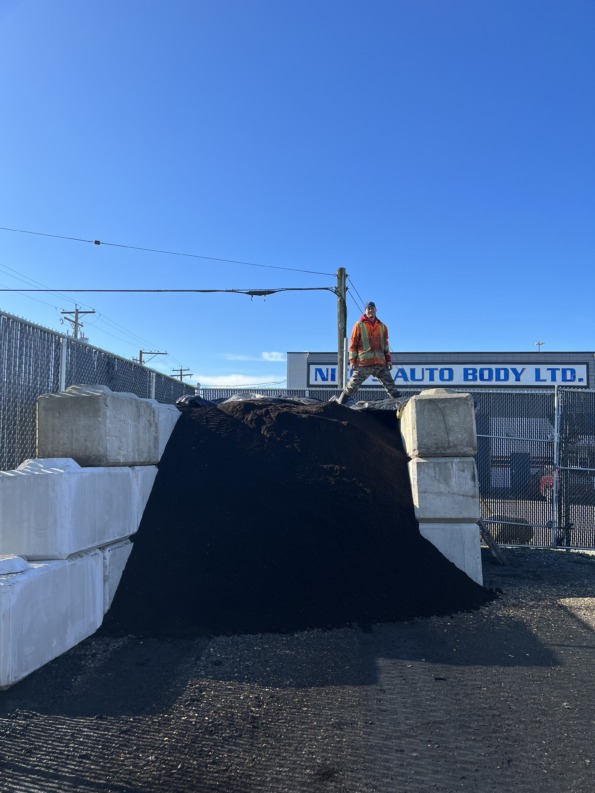
WCS Soil Depot, North Vancouver B.C. – Our lead yard operator Mike poses with our Black Gold Premium Compost – Photo by Charmaine Wu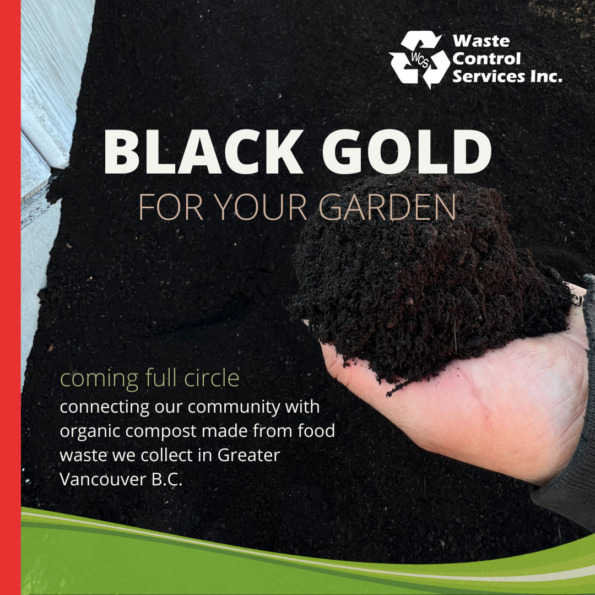
WCS Soil Depot, North Vancouver B.C. – close-up of our premium Black Gold compost – Photo & promo image by Charmaine Wu
Convinced yet? Check out this closeup shot below showing the texture of our compost from up close!
Waste Control Services is fulfilling its mission to ‘walk the talk’ and ‘close the loop’ in recycling, “recovering today to reuse tomorrow” by turning otherwise waste-bound materials into valuable bi-products that benefit both the earth, and your garden yields, bringing your food waste full circle.
While the use of compost in your landscaping, yard, or garden can help fight climate change by improving plant health, compost can also act as a carbon sponge, absorbing carbon from the atmosphere, working both correctively and preventatively.
Contrary to popular knowledge, fall is a great time to apply compost to your landscaping, yard or fall garden to ensure maximum benefits for a healthy mature and nutrient-rich soil, when spring comes around, if not all year-round!
You can find more details about our ‘Black Gold’ premium compost on our soil depot page, as well as hours and pricing, and full soil analysis / soil testing results.
Sources:
- https://climate.nasa.gov/vital-signs/carbon-dioxide/#:~:text=Carbon%20dioxide%20in%20the%20atmosphere,in%20less%20than%20200%20years.
- https://www.nytimes.com/2018/04/18/magazine/dirt-save-earth-carbon-farming-climate-change.html
- https://helpmecompost.com/home-composting/implementation/when-to-add-compost-to-the-garden/#:~:text=Fall%20is%20the%20best%20time,it%20on%20top%20as%20mulch.
- https://www.smilinggardener.com/organic-soil-management/where-to-buy-compost/
- https://www.netzerowasteeastgate.com/blank-1
- https://www.gore.com/products/industries/environmental-protection
- https://wastecontrolservices.com/wcs-depot/compost-soil/
- Photo by Jonathan Kemper – https://unsplash.com/photos/4z3lnwEvZQw?utm_source=unsplash&utm_medium=referral&utm_content=creditShareLink
- Photo by NOAA – https://unsplash.com/photos/Om82WVFDHLA?utm_source=unsplash&utm_medium=referral&utm_content=creditShareLink
- Photo by Yulian Alexeyev – https://unsplash.com/photos/xDLEUTWCZdc?utm_source=unsplash&utm_medium=referral&utm_content=creditShareLink
- Photo by Annie Spratt – https://unsplash.com/photos/2qEv_MOltfk?utm_source=unsplash&utm_medium=referral&utm_content=creditShareLink
- Photo by Amanda Cowper – https://www.netzerowasteeastgate.com/
- Photos by Charmaine Wu – https://wastecontrolservices.com/wcs-depot/compost-soil/
Do you have any helpful tips on applying compost to your landscaping, yard, or garden? Share your tips in the comments below!
Author: Charmaine Wu

